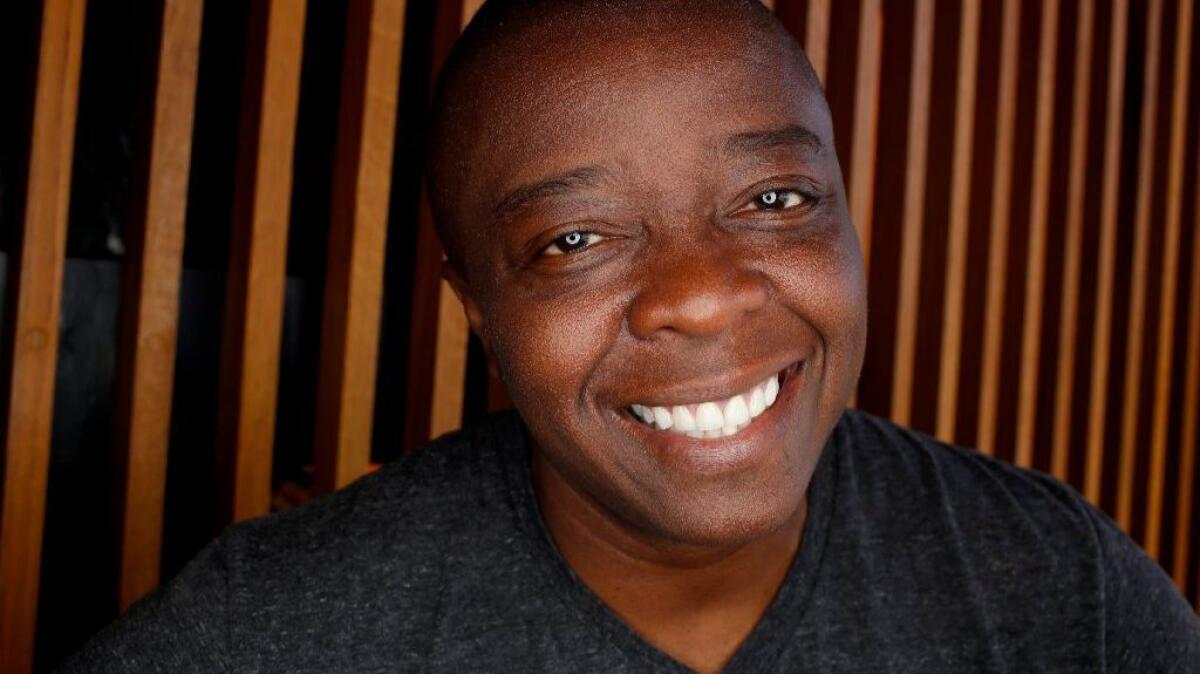âStrong Islandâ tackles crime, justice and racism with a personal â and cinematic â touch

After years of filming and editing, Yance Ford thought he had finished making âStrong Islandâ in 2014. And then it hit him.
âI didnât have the film that I wanted to have,â said Ford, whose Netflix documentary meditates on his brother Williamâs 1992 slaying, systemic racism and the implosion of their middle-class African American family in a Long Island suburb.
âI realized what I had done by accident was to make a great film about grief,â said Ford, who was 19 when his older brother died after a tense encounter at a notorious neighborhood chop shop. He was unarmed. The white teenage mechanic who shot and killed him was never prosecuted. The grand jury considered it a case of self-defense.
The more Yance Ford dug, and the more he was willing to expose in family artifacts and first-person interviews, the closer âStrong Islandâ got to the complex and achingly personal memoir that premiered at the Sundance Film Festival, where it won a special jury prize for storytelling.
The filmmaker, a longtime series producer for the Public Broadcasting Serviceâs âPOV,â began shooting in 2008, and in late 2014 decided to revamp everything. âI started carrying my hard drives with me,â he said, âand my laptop.â
The decision led Ford to Copenhagen, where over four months in 2015 he worked closely with Danish editor Janus Billeskov Jansen, part of the team that made the bold Indonesian mass killing documentaries âThe Act of Killingâ (a 2014 Academy Award nominee) and âThe Look of Silence.â
Jansen was âwading into this pool of racial tension that was very unfamiliar,â Ford recalled. âI was going to be, quite frankly, living in an almost exclusively white country.â
Those jolts were crucial to reshaping the film.
âIt was a scary moment for everybody, but it was a good decision,â said Joslyn Barnes, who began as an executive producer of the project and then became its hands-on producer, guiding Ford in the new direction.
Ford, living alone away from his partner, felt completely out of place. âAnd that let me focus just on the film.â
Encouraged by Jansen, Ford began breaking rules he had made for the film, such as not appearing on camera. The first-person perspective is now elemental. The forensic details are more extensive, as is the emotional power in the pages of Williamâs diary and photographs the filmmaker uncovered. He included new material from interviews, notably with his mother, who had died unexpectedly in 2012. âI had a lot of her being sad and not enough of her righteous anger,â Ford said. âMy mother is capable of expressing so many emotions at once, I had to let her do that.â
There also were unexpected side effects of an editor from a different culture.
âThe Danes didnât understand the American legal system at all,â Barnes said. âThey kept forcing us to explain, explain, explain.â
Although âStrong Islandâ aligns with an ongoing spate of true-crime documentaries and podcasts, as well as other recent films about American racial injustice, Fordâs aesthetic choices speak to ambitions in cinematic form.
Enlisting cinematographer Alan Jacobsen, Ford looked for visual inspiration in the photography of William Eggleston and Carrie Mae Weemsâ kitchen table series. He reflected on the poetic imagery of Chilean filmmaker Patricio Guzman, particularly his âNostalgia for the Lightâ and the way it captured âthese almost flecks of dust in the light.â Ford rejected the routine nonfiction practice of the B-roll. âEvery image in the film has its own meaning.â
Another model, in a fashion, was the Charles and Ray Eames short film âPowers of Ten.â âThe one that starts on a picnic blanket and goes all the way out into space,â Ford said. âAnd then it comes back to the picnic blanket, and goes all the way into the molecules. I feel like for me âStrong Islandâ is that film. Both the view from space, and the view from inside the single-cell organism crawling across the picnic blanket.â
Despite Fordâs success in translating personal trauma into a universal message, he wants audiences to confront a core issue after the intense emotions the film so artfully evokes.
âThe thing I want you to ask is that question about reasonable fear,â he said. âItâs not rhetorical. If people can take that extra step into the intellectual wrestling with the question of whose fear is reasonable, that for me would be the ultimate prize.â
See the most read stories this hour Âť
ALSO
WATCH: Video Q&Aâs from this seasonâs hottest contenders
Filmmakers Agnes Varda and JR turn to the common man to find heroes in âFaces Placesâ
The return of Jane Goodall, climate change and Syria among Oscar documentary hopefuls
More to Read
From the Oscars to the Emmys.
Get the Envelope newsletter for exclusive awards season coverage, behind-the-scenes stories from the Envelope podcast and columnist Glenn Whippâs must-read analysis.
You may occasionally receive promotional content from the Los Angeles Times.










